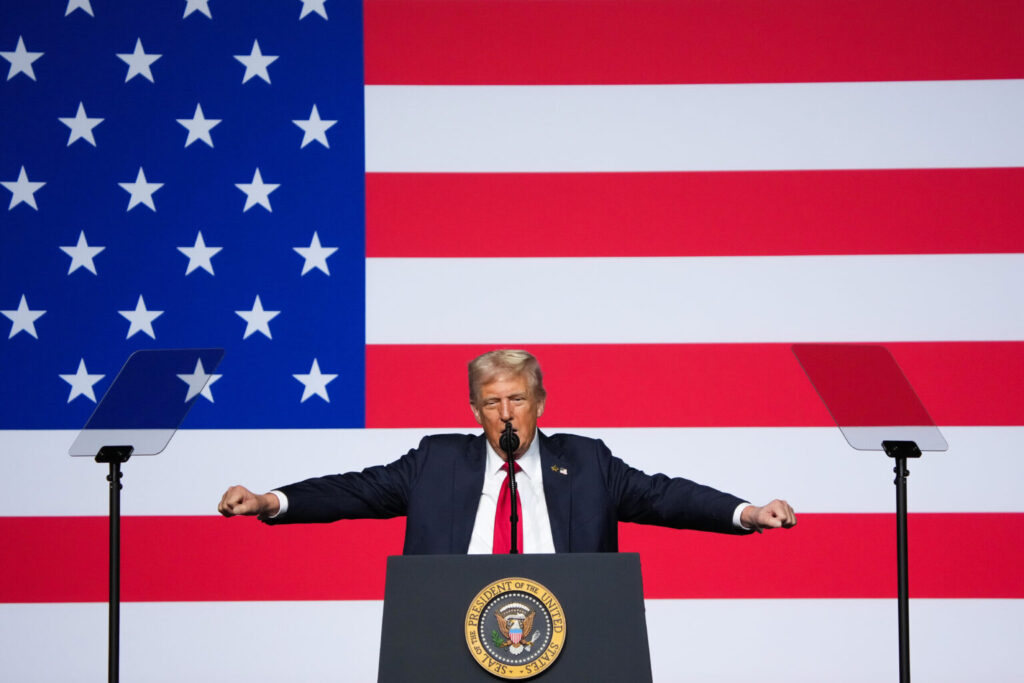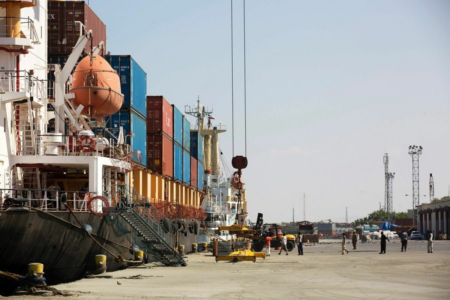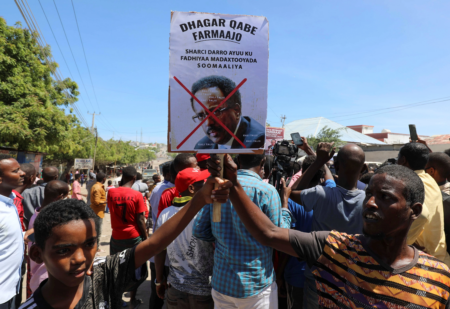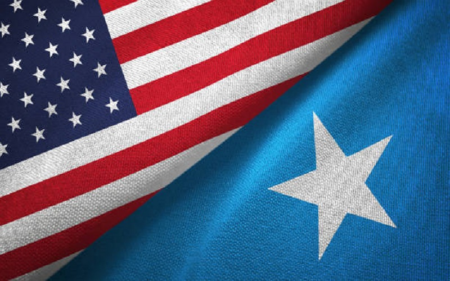U.S. President Donald Trump has stirred controversy by declaring that it is not America’s job to guard countries like Kenya and Somalia.
His remarks signal a possible shift in U.S. foreign and military policy in East Africa—one that could have significant implications for regional security and cooperation.
A Break from Long-Standing Security Partnerships
In a speech to over 800 U.S. military generals at Quantico, Virginia, Trump challenged the assumption that the U.S. should act as a global security policeman.
He said that resources spent protecting foreign nations should instead focus on defending the U.S. homeland.
“Only in recent decades did politicians somehow come to believe that our job is to police the far reaches of Kenya and Somalia,” he said.
These statements put in question decades of cooperation between Washington and its East African allies—especially Kenya, which hosts the U.S. military base in Manda Bay and works closely with Washington on counterterrorism operations, particularly in Somalia.
Risks and Uncertainties for Kenya and Somalia
Trump’s remarks raise serious questions about the future of military support, intelligence sharing, training, and joint operations in the region.
Both Kenya and Somalia have relied heavily on U.S. support against extremist groups like al-Shabaab. Scaling back U.S. involvement could leave security gaps that regional actors, including East African governments and African Union missions, would be forced to fill.
For Kenya, uncertainty looms over its role as a “major non-NATO ally,” a designation granted under previous administrations.
For Somalia, the potential withdrawal or reduction of U.S. engagement could constrain its ability to maintain security gains and manage internal threats.
A Possible Rebalancing Toward Self-Reliance
Trump’s pivot may push East African states to strengthen regional security mechanisms and invest in their own defense capacities.
It could also accelerate multilateral cooperation with African Union missions, the African Union Transition Mission in Somalia (ATMIS), and partnerships with other international donors.
However, such transitions are not without challenges. Budget constraints, institutional capacity, political instability, and threats from non-state actors complicate efforts to localize security.
East African countries would need to navigate this carefully to prevent new vulnerabilities.
A Turning Point in U.S.–East Africa Relations
President Trump’s assertion that guarding Kenya and Somalia is not America’s duty marks a sharp departure from past U.S. policy.
If acted upon, this stance could reshape strategic alliances, press regional actors to assume more security responsibilities, and test the resilience of East Africa’s counterterrorism frameworks.
The coming months will reveal whether these remarks translate into a substantive recalibration of U.S. engagement in the region.








